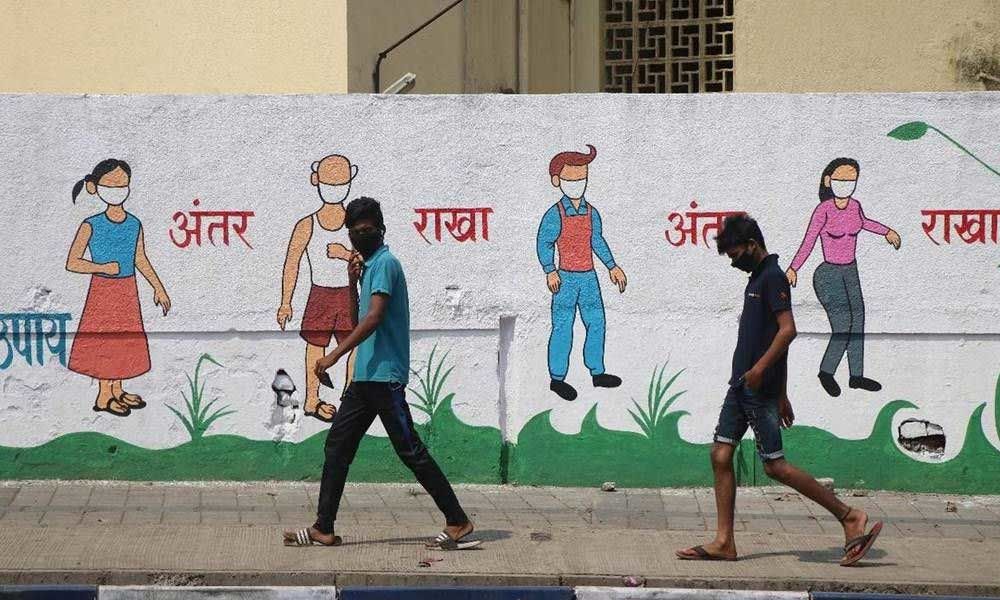What India should do now

What India should do now
- India should continue with proven mantra of ‘face mask, hand wash, and social distancing’
- Should focus on strengthening its weak health systems
India has been witnessing a steady decline in Covid-19 cases since mid-September despite gradual withdrawal of lockdown restrictions and ramping up testing. Case fatality rate, compared to many OECD countries, has been low around 1 per cent. Mobility of people has reached pre-Covid levels. Economy is showing 'V'-shaped recovery. Population in Delhi is inching towards natural herd immunity as per recent seroprevalence study that showed seroprevalence rate of 50 to 60 per cent.
Based on the last two rounds of seroprevalence studies, it is estimated that there are approximately 40 to 50 asymptomatic infections for every positive detected case. Emergency Use Authorization (EUA) has been granted to two vaccines and nearly 3 million frontline health workers have received the vaccine within first 2 weeks of nation-wide vaccination program.
It is important to have a realistic assessment of the pandemic behaviour in India so far so as to plan ahead in a pragmatic way. It is clearly evident that the infection has spread to sizeable number of people despite containment measures. It is also clear that the case fatality rate at ~1 per cent or 1 in 100 (number of deaths per Covid-19 positive cases) and infection fatality rate at ~0.025 per cent or 1 in 4000 (number of deaths per infected cases – asymptomatic and symptomatic) has been low compared to high income countries.
Since India had same strains as rest of the world, virus related factors may not explain the behaviour so far. It is most likely that the host related factors explain the behaviour. Similar behaviour is being witnessed in low-to-middle income countries (LMIC) in South and South-East Asia and Africa, while the behaviour is quite different in South America.
Simple measures like use of face masks, hand washing, and social distancing have convincingly demonstrated to be effective in reducing spread of infection. They may also reduce the number of symptomatic cases. We do not have comparative data on compliance to above measures across countries to explain different behaviour of the pandemic. Role of immunity is being studied extensively to explain the differences. It is known that people who live in crowded and unhygienic habitats may have more robust innate immunity (body's first defence response to any pathogen irrespective of prior exposure).
BCG vaccine is known to enhance non-specific immune response to various pathogens. Research evidence on the role of BCG has been mixed so far. Corona viruses are responsible for nearly one third of common colds. It is demonstrated that people do exhibit both antibody and cell-mediated cross-immunity to SARS-CoV 2 virus that causes Covid-19 illness. Despite the above pointers, the behaviour remains a puzzle!
World has witnessed an unprecedented global collaboration amongst researchers to come up with diagnostic tests, repurposed drugs like steroids and Remedesivir, innovative therapies like monoclonal antibodies, and variety of vaccines within one year of the pandemic. Not unexpectedly, the virus too has been undergoing many mutations to evade these human efforts. The World War III – the one between humanity and the SARS – CoV2 virus, continues! Vaccines are only one more weapon in our armamentarium.
India has to be cautious against many unknowns at this stage of the pandemic. Behaviour of the new variants coming up in different countries is a cause for concern. Uncertainty about the duration of immunity gained through natural infection and vaccination is another area of concern. Whether the new strains evade existing immunity is the third concern. Given these concerns, India can adapt the following strategies to remain ahead of the curve.
India should continue with its proven mantra of 'face mask, hand wash, and social distancing'. Relentless public messaging should continue on these measures. It should maintain border controls as per emerging data on new strains. It should continue with its surveillance system to spot reinfections, emerging spikes or even slowing of declining case rates. Existing and emerging vaccines should be continuously tested against new strains for their efficacy. Efforts should continue on developing novel antiviral drugs.
In addition to the above, India should focus on strengthening its weak health systems. Recent economic survey makes a strong case for increased public health spending to not only reduce impoverishing and catastrophic out of pocket health expenses but also to improve economic productivity. Focus on existing health issues should not be diluted. India should also leverage its strength in pharma and vaccine capacity to help people across the world.
Covid pandemic has thrust reluctant health systems into the rapidly changing world of digital and molecular technologies. Healthcare may accelerate towards genomic based precision medicine. India has an opportunity to prepare itself for the future of personalized health care. Two of the major policy reforms – National Digital Health Mission (NDHM) and National Science, Technology and Innovation (NSTI) Policy - announced during the pandemic are apt to make this possible.
Post-Covid world will go through a massive geo-political, economic, technological and social change just as the change the world witnessed after two world wars. India has an opportunity to regain its rightful place in global affairs. Great leaders see opportunity in every crisis where others falter!
(The author is President, InOrder, Regional Director (South Asia), ACCESS Health International)








